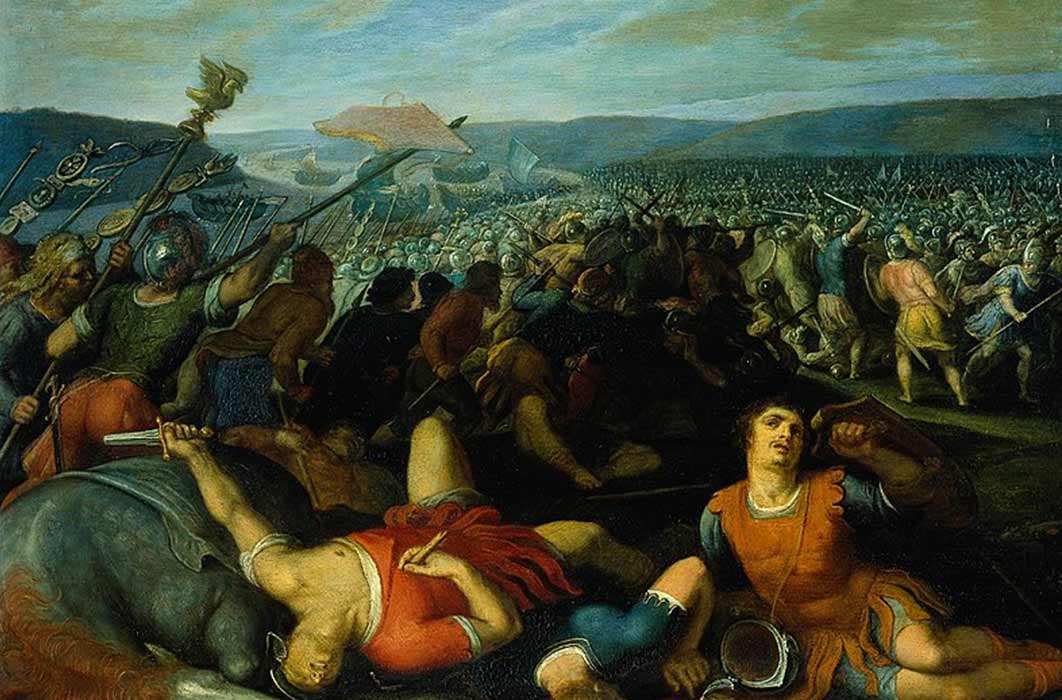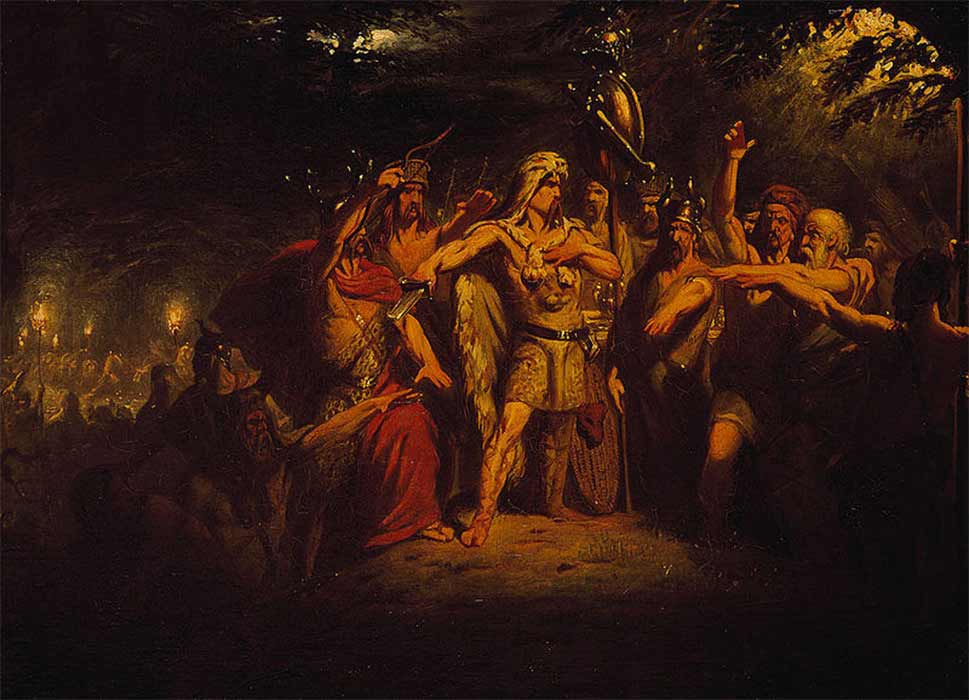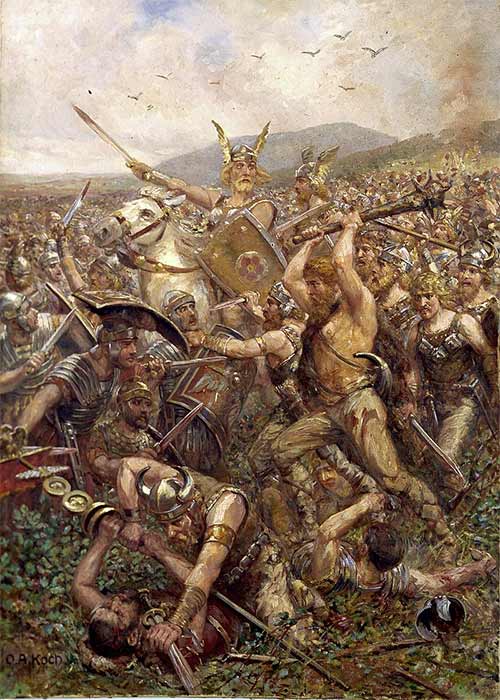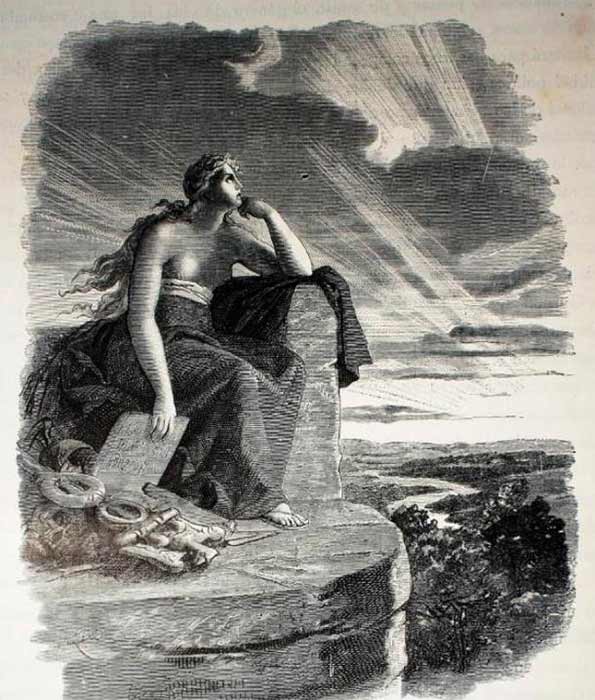
Veleda, Bructerian Seeress, Deity and Nemesis Of The Romans
The Revolt of the Batavi which occurred between 69 and 70 AD was an uprising against the Roman Empire led by the Batavi, a small but powerful Germanic population of Batavia on the Rhine delta. This small group expanded rapidly as other Germanic tribes and Celtic tribes from Gallia Belgica joined their forces. The Batavi’s leader, the Romanized Gaius Julius Civilis, whose skills were honed in Roman warfare as an auxiliary officer, enlisted the aid of a powerful seeress Veleda and together the allies humiliated the Roman army with a series of crushing defeats, including the annihilation of two Roman legions.

Civilis inciting the Batavians to rebel by Barend Wijnveld (1835) (Public Domain)
The annihilation of the two Roman legions was a low point in Roman history. But things took a turn in 77 AD when, following some initial victories, a massive Roman army eventually defeated the insurgents. Following peace talks, the Batavi surrendered and once again submitted to Roman rule. However, this time they were forced to accept humiliating terms and endure a legion being stationed permanently on their territory, at Noviomagus (modern day Nijmegen, The Netherlands).
The Prophetess Veleda. ( CC BY 2.0 )
Veleda The Seeress, Deity And Leader
The rebellion may not have ended in favor of the Batavis, but the rebels' early successes were undeniable and remarkably, their early victories over the Roman legions were foretold by Veleda, a seer. Veleda was worshiped as a deity by the majority of the tribes in central Germany in the latter half of the first century AD, and she wielded considerable power. She lived in a tower near the Lippe River, one of the Rhine’s tributaries.
The Romans were not only aware of Veleda as a Germanic prophetess, they also took great trouble to understand her role, and the role of Germanic prophetesses in general, especially in battles and negotiations. Tacitus, a Roman historian, describes Veleda in his ethnography of Germania as “an unmarried woman who enjoyed wide influence over the tribe of the Bructeri.” His writings revealed how exceptional Veleda was, at least in the eyes of his Roman readers’ expectations of how a first-century woman should behave. In contrast to the ‘proper’ Romans, the ‘barbarian’ Germans “… even believe that the female sex has a certain sanctity and foresight, and they do not scorn their counsels or dismiss their responses. We saw Veleda, long regarded as a divinity by many, during the reign of [the emperor] Vespasian.” These prophetesses-turned-goddess on Earth were among the most powerful tribal leaders, apparently wielding both religious and secular authority.

Battle of Teutoburg Forest by Otto Albert Koch (1909) (Public Domain)
Alliance Of Civilis And Veleda
Over the centuries, the Roman attempt to conquer Germany had experienced many ups and downs. Although the Roman general Germanicus, brother of Emperor Claudius, achieved military glory on the Rhine, the Germans (the Bructeri tribe in particular) had already massacred more than ten percent of the entire Roman army at the Battle of the Teutoburg Forest in 9 AD. Therefore, despite the Empire’s best efforts, the region known as Germania proved to be a persistent thorn in the sides of the Julio-Claudian emperors.





